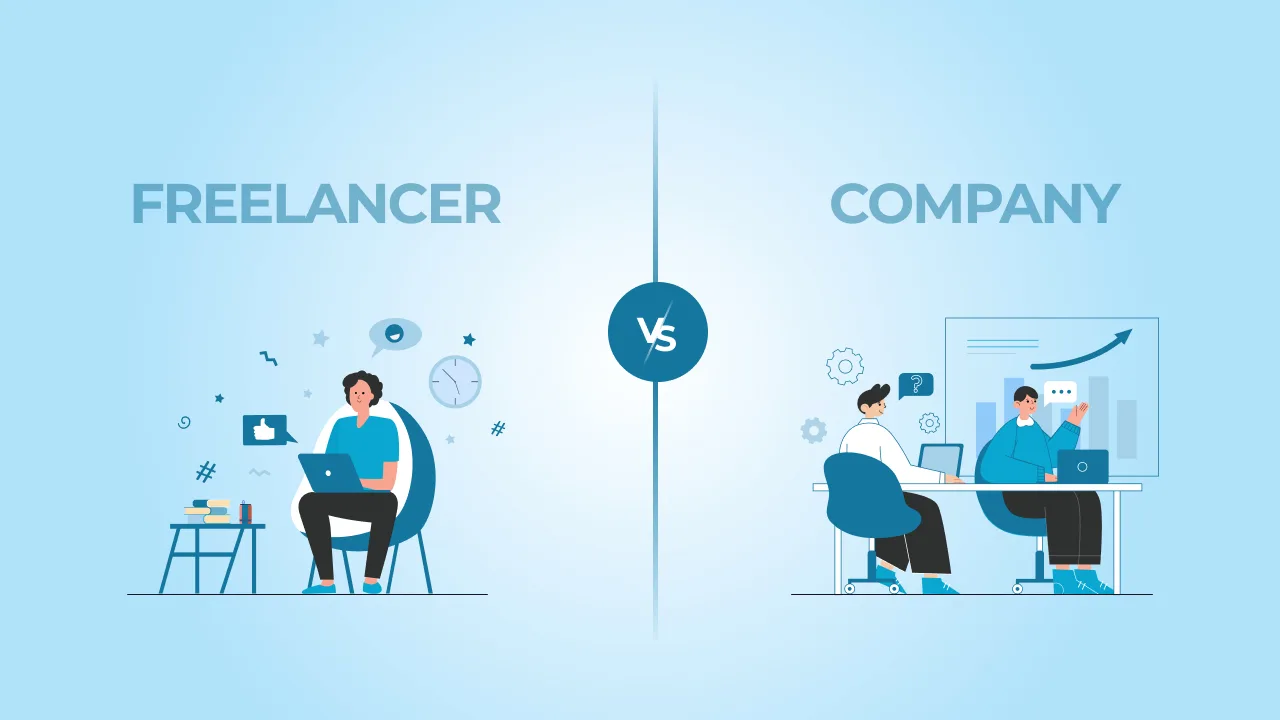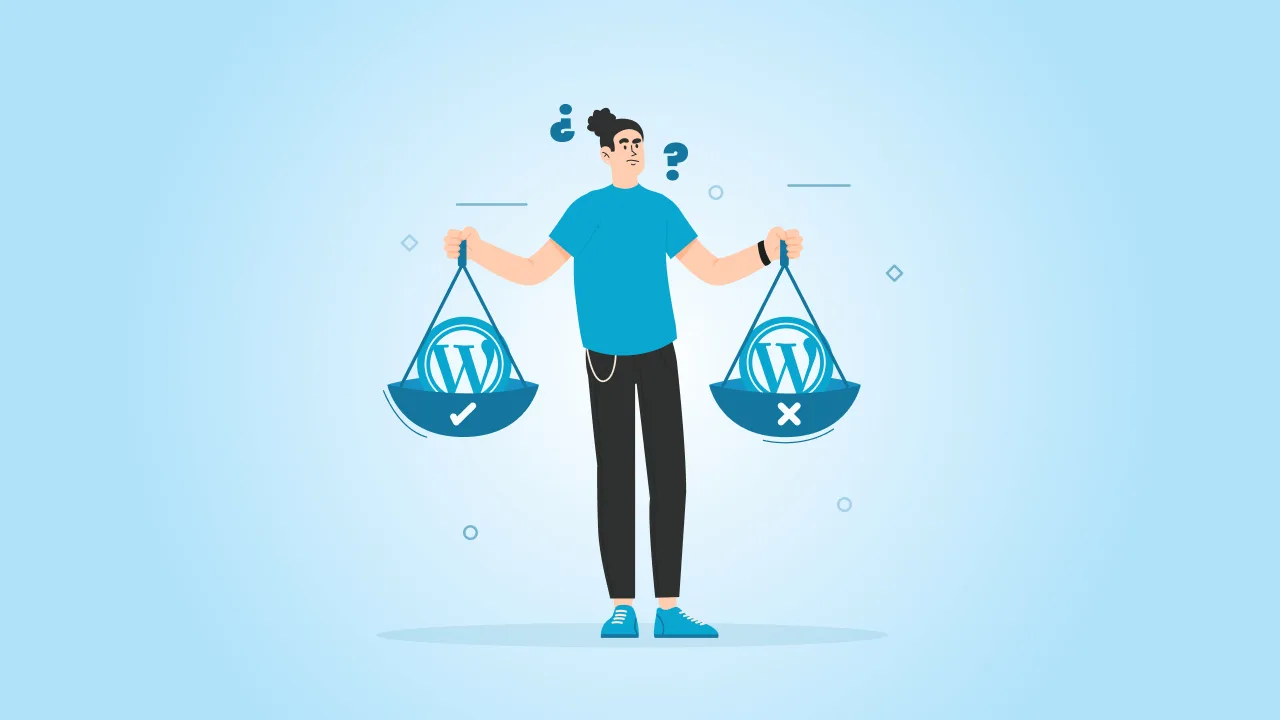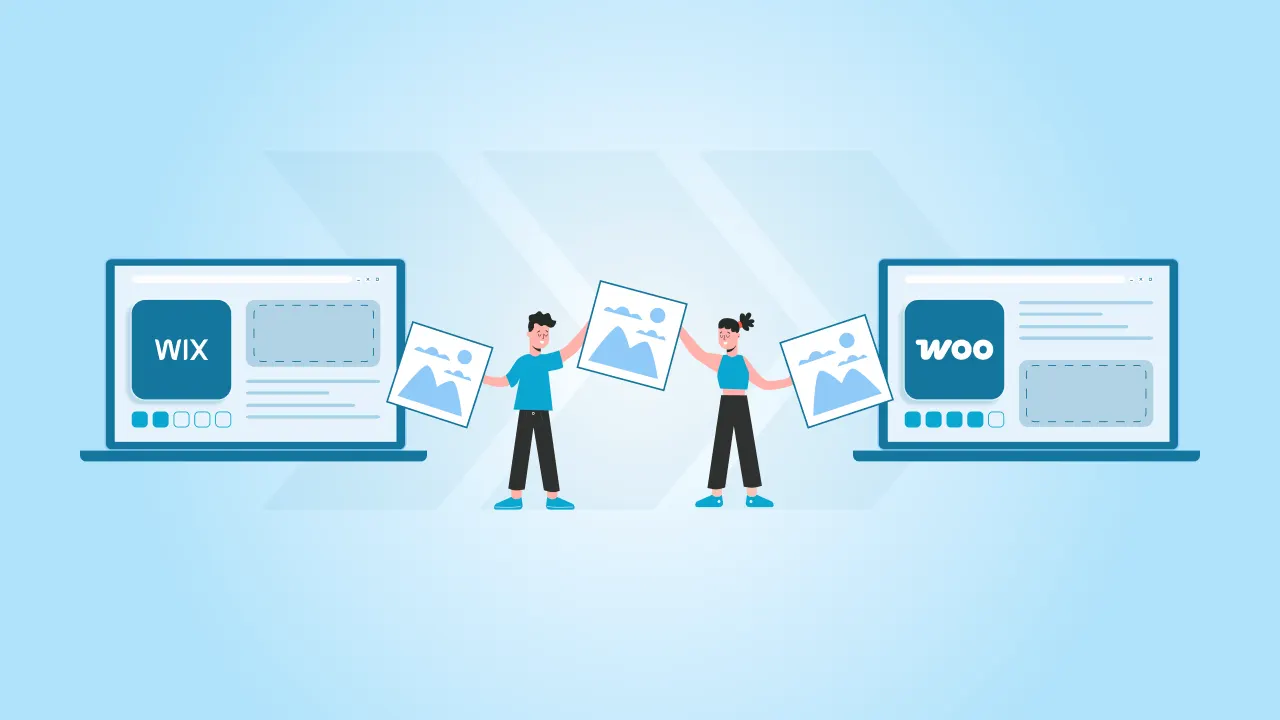Shopify is a platform that helps people turn their business ideas into reality.
How’s that?
Now, whether you are starting small something like a side hustle, or running a big brand with customers around the world, Shopify gives you everything you need to sell your products, grow your business, and take it to the next level.
What sets Shopify apart is how simple it makes running an online store. From accepting payments to managing inventory, it takes care of the technical details so you can focus on building your business and serving your customers.
Well, the numbers speak for themselves. Over 5 million businesses in 175 countries use Shopify to sell their products. Together, they have made more than $40 billion in sales. That’s proof of how much this platform has helped people succeed in the growing world of online shopping.
In case you are entirely new to eCommerce or looking to scale your current business, Shopify has become the go-to choice for entrepreneurs around the world.
In this guide, we will break down what Shopify is, its features, benefits, cost, how it works, and why it might be the perfect platform for your business.
What is Shopify?
Shopify is a commerce platform that makes it easy for individuals and businesses to create, manage, and grow online stores. It provides all the tools needed to sell products, manage inventory, process payments, and handle shipping. Known for its user-friendly interface, Shopify is a great choice for both beginners and experienced entrepreneurs looking to build and scale their online businesses.
Key Features of Shopify
Shopify is packed with features that cater to businesses of all sizes. Here’s a closer look at the tools that make Shopify a favorite among entrepreneurs:
1. Easy-to-Use Store Builder
Shopify’s store builder is designed to make creating an online shop as simple as possible.
- Customizable Themes: Choose from a wide range of free and premium themes designed for different industries, like fashion, electronics, or health and wellness.
- Drag-and-Drop Editor: Modify your store layout by simply dragging elements into place—no coding required.
- Branding Options: Add your logo, change fonts, and adjust colors to make your store uniquely yours.
📌Example: A small jewelry business can use Shopify’s intuitive builder to create a beautiful store showcasing its handmade designs without hiring a Shopify developer.
2. Secure and Reliable Hosting
Running an online store requires a reliable platform to handle traffic and keep data secure. For that, Shopify provides:
- 99.9% Uptime: Your store stays online even during busy shopping seasons.
- SSL Certification: Keeps your customers’ information safe and builds trust by showing a secure padlock in the browser.
- Automatic Updates: Shopify handles software updates, so you don’t need to worry about maintaining your store.
Why it Matters: A slow or unreliable website can lose customers. Shopify ensures your store is always fast and available.
3. Payment Processing Made Simple
Shopify takes the hassle out of handling payments:
- Shopify Payments: Accept major credit cards, digital wallets (like Apple Pay and Google Pay), and local payment methods.
- Multiple Gateways: Integrates with PayPal, Stripe, and other gateways if Shopify Payments isn’t available in your region.
- No Hidden Fees: If you use Shopify Payments, you won’t be charged extra transaction fees, which can save you money.
Real-World Use: A café selling coffee beans online can use Shopify Payments to accept credit card payments effortlessly.
4. Multi-Channel Selling
Shopify helps you reach customers wherever they shop:
- Social Media: Connect your store to Instagram, Facebook, and TikTok to sell directly on these platforms.
- Marketplaces: List your products on Amazon, eBay, and Etsy while managing everything from your Shopify dashboard.
- Point of Sale (POS): Sell in physical locations like pop-up shops or retail stores using Shopify’s POS system.
📌Example: A clothing brand can sell on its website, Instagram, and in-person at events—all while keeping inventory in sync.
5. Powerful App Store
Need more functionality? Shopify’s App Store has you covered:
- Marketing Tools: Apps like Klaviyo for email campaigns or Facebook Ads integrations to drive traffic.
- Shipping Solutions: Use apps like ShipStation or Easyship to simplify order fulfillment.
- Customization: Add features like live chat, customer reviews, or subscription plans.
💡 Pro Tip: Start with essential apps like Search Engine Optimizer to help your store rank higher in search engines.
6. Mobile-Friendly by Design
Did you know that over 50% of online shopping happens on mobile? Shopify ensures your store looks great on any device:
- Responsive Themes: Your website automatically adjusts to fit screens of all sizes.
- Mobile Checkout: Provides a seamless shopping experience with mobile payment options like Apple Pay.
Benefit: A responsive Shopify store design helps reduce abandoned carts and keeps customers happy.
7. Built-In Analytics and Reporting
Understanding your store’s performance is crucial for growth. Shopify offers:
- Dashboard Insights: View sales, traffic, and customer data at a glance.
- Advanced Reports: Track metrics like customer retention, product performance, and marketing ROI.
- Google Analytics Integration: Dive deeper into user behavior and conversion tracking.
📌Example: A skincare brand can use Shopify analytics to discover that their best-selling product performs better in one region and adjust their marketing strategy accordingly.
8. Customer Support and Resources
Shopify is there when you need help:
- 24/7 Support: Get assistance via live chat, email, or phone, no matter where you are.
- Shopify Learn: Access free tutorials and guides to sharpen your e-commerce skills.
- Community Forum: Join discussions with other store owners to exchange tips and advice.
Why It’s Helpful: New sellers can quickly find answers and solutions to keep their stores running smoothly.
Let cmsMinds Create a Tailored Solution for You!
Benefits of Shopify
Shopify isn’t just a platform—it’s a partner that helps you build and grow your online business as we already said. Doesn’t matter if you are starting from scratch, scaling up, or somewhere in between, Shopify offers benefits that cater to different types of users. Let’s explore what makes it stand out:
1. Designed for Everyone: No Technical Expertise Needed
One of Shopify’s biggest strengths is its simplicity. Even if you have no background in Shopify development or Shopify website design, you can create a professional-looking online store in hours.
- For Entrepreneurs: Shopify’s intuitive tools save time, letting you focus on growing your business.
- For Developers: Advanced users can tweak every aspect of their store using Liquid, Shopify’s templating language, or by integrating custom apps.
- For Small Business Owners: Built-in features like payment processing, inventory tracking, and shipping integrations eliminate the need for multiple tools.
2. A Growing Ecosystem with Endless Possibilities
Shopify’s App Store is a game-changer, with over 8,000 apps to expand your store’s functionality. From automating email marketing to offering subscription-based products, the possibilities are endless.
- Built for Growth: As your business expands, Shopify scales with you. Transitioning from the Basic plan to Shopify Plus for enterprise-level businesses is seamless.
- Multi-Channel Selling: Reach customers on marketplaces, social media platforms, and even in person through Shopify POS.
| Feature | Shopify | WooCommerce | BigCommerce |
|---|---|---|---|
| Ease of Use | Beginner-friendly | Requires WordPress setup | Steeper learning curve |
| Hosting Included | Yes | No | Yes |
| Payment Gateways | Shopify Payments + 100+ | Requires plugins | Built-in + external |
| Customization | Flexible themes, app store | Full WordPress control | Limited without coding |
| Support | 24/7 live chat, email, phone | Community-based forums | Live support + resources |
If you’re planning to transition to Shopify Plus or scale your existing store, partnering with a Shopify Plus agency can help you unlock the platform’s full potential. From advanced customizations to seamless integrations, an experienced agency ensures your growth strategy is built on a strong foundation.
3. Benefits for Different User Types
- For First-Time Sellers: Shopify’s straightforward setup and free trial make it easy to dip your toes into eCommerce. Templates and pre-built features mean you can launch your store quickly without worrying about the tech.
- For Established Businesses: Shopify’s scalability ensures that growing businesses don’t outgrow the platform. Tools like Shopify Plus, advanced analytics, and automation help streamline operations for larger brands.
- For Developers and Agencies: With complete access to Shopify’s API and the ability to build custom apps, developers can create tailored solutions for unique business needs.
4. Proven Success Stories
Shopify has powered countless success stories, from small startups to household names. Here are a few examples:
- Gymshark: Starting from a garage, this fitness apparel brand now generates millions annually using Shopify Plus.
- Allbirds: This eco-friendly footwear company used Shopify’s multi-channel features to expand globally.
- House of Wise: A small CBD wellness brand scaled quickly by leveraging Shopify’s marketing tools and analytics to target the right audience.
5. All-in-One Convenience
Shopify eliminates the need for juggling multiple tools. Hosting, payment processing, marketing, and shipping are all in one place, saving you time and money.
How Shopify Works: A Simple Overview
Now that we have covered the key features and benefits of the Shopify platform, let’s jump into how the platform actually works. Whether you are a complete beginner or have some experience with online selling, Shopify’s streamlined process is designed to get you up and running quickly.
Here’s a step-by-step guide to how Shopify operates:
1. Setting Up Your Shopify Store
The first step to launching your Shopify store is creating an account. Don’t worry, it’s quick and easy:
- Sign-Up: Simply provide your name, email, and store name, and you are ready to start building.
- Choosing a Theme: Select a pre-designed theme that fits your brand. These themes are fully customizable, so you can change colors, fonts, and layouts to make your store unique.
- Domain Name: Shopify lets you buy a domain directly through their platform or connect an existing one. Your domain is the web address customers will use to find your store.
2. Adding Products to Your Store
Once your store is set up, it’s time to add products:
- Product Details: You can add product names, descriptions, prices, and images, and even categorize them for easy browsing.
- Inventory Management: Shopify lets you track stock levels, so you will never run out of popular items without knowing. You can also set up notifications for low-stock products.
- Shipping Options: You can set shipping rates based on location, weight, or price, and even integrate with services like USPS or UPS for real-time shipping rates.
3. Configuring Payments and Taxes
Shopify simplifies payment processing by offering several integrated options:
- Shopify Payments: This is Shopify’s in-built payment processor, allowing you to accept credit card payments with no extra fees.
- Payment Gateways: Shopify integrates with over 100 gateways, including PayPal, Stripe, and others, allowing customers to pay in the way that’s easiest for them.
- Tax Settings: Shopify automatically calculates taxes based on your location and the locations you are selling to. You can also set up manual tax rates if needed.
4. Launching and Marketing Your Store
Once your products are added, and payments are set up, you are ready to launch. Shopify offers tools to help you spread the word:
- SEO Tools: Shopify has built-in SEO features to help your store rank on search engines. You can edit meta descriptions, URL slugs, and page titles to optimize your site.
- Email Marketing: Shopify integrates with email marketing tools like Mailchimp and Klaviyo to help you send out campaigns and updates to your customers.
- Social Media: Shopify’s multi-channel integration lets you sell on Facebook, Instagram, and other platforms directly from your store.
5. Managing Orders and Customer Support
After your customers place their orders, Shopify makes it easy to manage everything in one place:
- Order Management: You can track every order from your Shopify dashboard, mark them as fulfilled, and send tracking information directly to customers.
- Customer Profiles: Shopify stores customer information securely, making it easy to track orders, offer discounts, or create personalized marketing campaigns.
- Customer Support: Shopify provides 24/7 support via chat, email, and phone, and a wealth of resources through their Help Center and community forums.
6. Growing Your Business with Shopify
As your business expands, Shopify offers advanced features to scale your operations:
- Shopify Plus: For enterprise-level businesses, Shopify Plus offers enhanced customization, dedicated support, and greater control over your store’s functionality.
- Shopify Analytics: Track sales trends, customer behaviors, and product performance with Shopify’s analytics tools. These insights help you make data-driven decisions to grow your business.
- Apps and Integrations: Shopify’s App Store gives you access to thousands of tools to enhance your store—whether you need help with shipping, customer service, or marketing automation.
Shopify Pricing Plans: Detailed Comparison
| Plan | Monthly Cost | Transaction Fees (without Shopify Payments) | Credit Card Fees (with Shopify Payments) | Best For |
|---|---|---|---|---|
| Shopify Starter | $5 | 5% | N/A | Selling via social media and email. |
| Basic Shopify | $39 | 2% | 2.9% + $0.30 per transaction | Startups and small businesses. |
| Shopify | $105 | 1% | 2.6% + $0.30 per transaction | Growing businesses with higher sales. |
| Advanced Shopify | $399 | 0.50% | 2.4% + $0.30 per transaction | Scaling businesses with global reach. |
| Shopify Plus | Starts at $2,000+ | Custom Pricing | Custom Pricing | Enterprise-level brands and large sales volumes. |
What You Get for Each Price
1. Starter Plan
Perfect for entrepreneurs who are just starting out, the Starter Plan focuses on selling via social media and email. It’s an affordable way to test your business idea before building a full online store.
2. Basic Shopify
The Basic plan gives you everything you need to create a fully functional online store. You’ll have tools for product listings, payments, and order management.
3. Shopify and Advanced Shopify
As your store grows, upgrading to these plans provides advanced analytics, lower payment fees, and tools like international pricing for global sales.
4. Shopify Plus
Designed for enterprises, Shopify Plus offers scalability and customization at an unmatched level. Brands like Gymshark, Allbirds, and Heinz use Shopify Plus to power their e-commerce operations globally.
Understanding Shopify’s Fees
Transaction Fees
- With Shopify Payments: No additional transaction fees, only credit card processing fees (2.9% + $0.30 for Basic Shopify, with lower rates for higher plans).
- Without Shopify Payments: A transaction fee applies (2% for Basic, 1% for Shopify, 0.5% for Advanced).
Example Cost Breakdown
If your store generates $5,000 in monthly revenue on the Basic plan:
- Shopify Fee: $39
- Credit Card Processing Fees: $145 (2.9% + $0.30 per transaction, assuming 50 orders).
- Total Cost: $184/month.
Shopify ROI Insights
Shopify’s ROI depends on how effectively you use its tools. On average, most Shopify stores break even within 3 to 6 months, depending on startup costs and marketing strategies.
How to Calculate Monthly ROI
- Calculate Monthly Revenue: Estimate your gross sales (e.g., $5,000/month).
- Subtract Shopify Costs: Include the plan fee, payment fees, and any app subscriptions.
- Factor in Marketing Spend: Add ad spend for platforms like Google or Facebook.
- Analyze Profit Margins: Deduct product costs and operational expenses.
Example ROI:
- Monthly Revenue: $5,000
- Shopify Costs: $184 (plan + fees)
- Marketing Spend: $1,000
- Product Costs: $2,500
- Net Profit: $1,316
- ROI: ~26% of revenue reinvested into growth.
Shopify Plus for Enterprise Businesses
For high-volume stores, Shopify Plus offers advanced customization, scalability, and dedicated support.
- Cost: Starts at $2,000/month, with additional fees for higher traffic and sales.
- Features: Automation tools like Shopify Flow, exclusive apps, and API access for deep integrations.
📌 Examples of Success:
- Gymshark: Transitioned to Shopify Plus to handle massive global sales during major launches.
- Kylie Cosmetics: Scaled rapidly while maintaining a seamless customer experience using Shopify Plus.
Other Key Costs to Consider
Apps and Integrations: Shopify’s App Store is incredibly versatile, but many premium apps have monthly subscription fees. Popular apps for marketing, shipping, or custom Shopify themes can range from $5 to $50 per month (or more, depending on complexity).
- Domain Purchase: Shopify allows you to buy a custom domain starting at around $14/year.
- Shipping and Fulfillment: If you are using Shopify Shipping, rates vary by carrier and location. Shopify’s plans often include discounted rates with carriers like UPS, DHL, and USPS.
- Point-of-Sale (POS) Hardware: For physical stores, Shopify POS hardware like card readers and barcode scanners is an additional expense.
Example Cost Breakdown
Let’s assume a small business on the Basic Shopify plan generates $5,000 in monthly revenue with 50 transactions.
- Plan Cost: $39
- Credit Card Processing Fees: $145 (2.9% + $0.30 x 50 transactions)
- Transaction Fees: $100 (2% of $5,000 revenue if Shopify Payments isn’t used)
- App Fees: $30 (e.g., email marketing or shipping app)
- Total Monthly Cost: $314
Shopify vs. Alternatives: Key Comparison
| Feature | Shopify | WooCommerce | Wix | BigCommerce |
|---|---|---|---|---|
| Ease of Use | Beginner-friendly, all-in-one | Requires WordPress knowledge | Drag-and-drop simplicity | Slight learning curve for advanced tools |
| Hosting | Included | Requires separate hosting | Included | Included |
| Customization | Limited without apps | Unlimited via plugins and coding | Moderate customization | Strong built-in features |
| E-commerce Tools | Comprehensive (apps available) | Requires plugins for advanced features | Basic e-commerce functionality | Strong out-of-the-box tools |
| Transaction Fees | None with Shopify Payments | Varies by payment gateway | None on higher plans | None on all plans |
| Scalability | Suitable for small to enterprise | Scales well with technical expertise | Limited scalability for larger stores | Strong scalability for medium to large stores |
| Design Options | Mobile-optimized, e-commerce-focused themes | Highly flexible but requires effort | Highly customizable, less e-commerce-focused | Functional and mobile-friendly |
| Pricing | Starts at $39/month (plus fees) | Hosting + domain + plugin costs vary | Starts at $27/month | Starts at $29.95/month |
| Best For | Sellers of all levels seeking simplicity | Advanced users need full control | Small stores or service providers | Larger businesses with complex needs |
Key Takeaways
- Choose Shopify if you want a hassle-free, all-in-one e-commerce platform with robust support and scalability.
- Opt for WooCommerce if you are comfortable managing hosting and plugins and need advanced customization.
- Pick Wix if you are a small business or creative entrepreneur prioritizing ease of use and design over deep eCommerce tools.
- Go with BigCommerce if you need built-in functionality and are operating a medium to large-scale online store.
Conclusion: Is Shopify Right for You?
Shopify has earned its reputation as a leading eCommerce platform by providing a seamless experience for businesses of all sizes. Having said that, no platform is one-size-fits-all. If you need deep customization or prioritize content creation, alternatives like WooCommerce or WordPress may better suit your needs. Similarly, small, budget-conscious businesses might find platforms like Wix more aligned with their goals.
At the end of the day, the right platform depends on your business objectives, technical skills, and growth ambitions. Shopify stands out for its simplicity, scalability, and powerful e-commerce tools, but the final choice is yours to make.
Let cmsMinds Handle Your Store Migration Hassle-Free!





